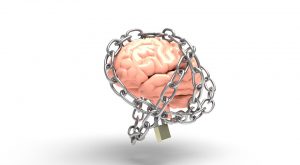 Don’t believe everything you think-Part 2 of 3
Don’t believe everything you think-Part 2 of 3
Luke was tired of his wife, Leah* pressuring him about changing his job. He would look for another eventually, but now was not the time. Leah insisted Luke had broken a commitment to her that they could move when the kids finished school. She was counting on that promise. There were no promises, Luke fired back. Leah wanted to bring in witnesses to support her version of events. Luke said she was rewriting history. Perhaps twenty-five years of marriage was enough, each of them thought.
Leah and Luke were so confident about their individual memories that they believed the other was lying. Since the truth was obvious to each of them, the other must be deliberately twisting reality for their own benefit. Decades of mutual love flew out the window. How can you respect a partner who is a liar?
Changing Memories
While only one of these versions of events may have happened, the other is not necessarily invented. Turns out, memories are more malleable than most people realize. Memory researcher consistently find that people forget, modify and incorporate information from other people into their recollections.
Over time, memories become a hybrid of other people’s experiences, news reports and random events. Fluctuating emotions and a flood of stress hormones will also alter what is left in our minds. Further, research finds people are unaware how the brain works and cling tenaciously to their current version of events.
Flashbulb studies provide insight into our shifting memories.[1] They track what people recall after sudden life changing events over long periods of time. Sept. 11, 2001 was the perfect time to collect this data. One study followed people for ten years. Others looked at those who were less affected vs. those who had losses.
Details of such a horror should be permanently tattooed across neuronal pathways. Instead flashbulb studies consistently find long-term memories become less accurate in predictable ways but people’s confidence in their recollections is unwavering. In other words, your memories will become less accurate but you will continue to swear by them.[2]
If Leah and Luke understood how memory works, they would stay confident in their versions of events and cut the other some slack. Leah would not assume Luke is a liar. Luke would be open to an alternate memory reality where Leah is not a manipulative harpy. Instead of hostility toward each other and anxiety about their relationship, they would remember their mutual affection and work out their differences from a place of wholeheartedness.
*Not their real names
[1] https://onlinelibrary.wiley.com/doi/abs/10.1002/acp.1497
[2] http://journals.sagepub.com/doi/abs/10.1177/1754073908100432